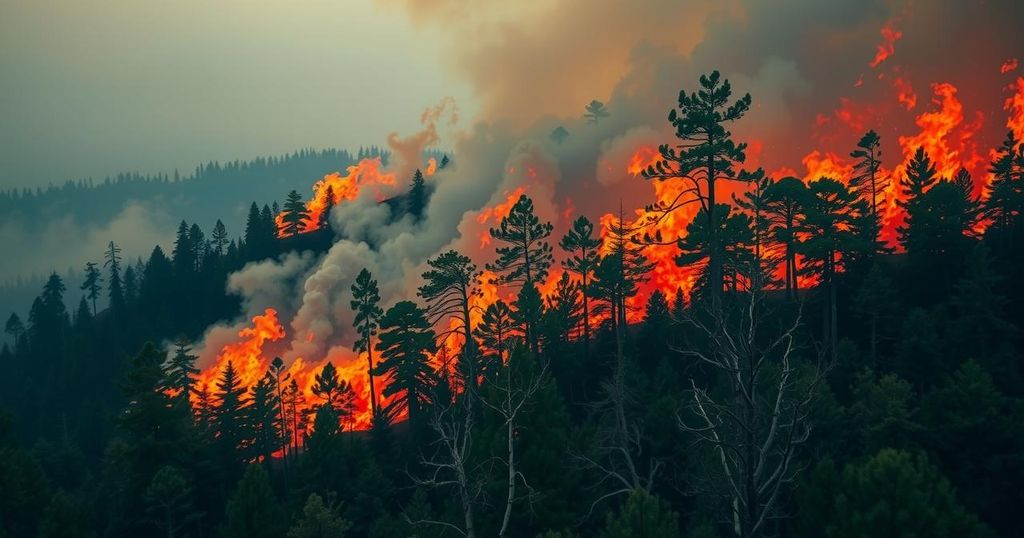Climate change intensifies forest fires, leading to extensive environmental and health impacts. Recent studies highlight a significant increase in burned areas and related deaths due to air pollution, particularly in vulnerable regions. Research indicates a correlation between rising temperatures, drought conditions, and increased fire severity, necessitating urgent climate action to mitigate these effects.
Climate change amplifies the frequency and severity of forest fires, which, in turn, poses significant risks to both environmental sustainability and public health. A collaborative study published in the journal Nature Climate Change, involving researchers from ETH Zurich, has indicated that from 2003 to 2019, nearly 16% more forest area was scorched than in scenarios devoid of climate change influences. The most adversely impacted regions include Australia, South America, western North America, and Siberia. Despite a global decrease of 19% in burnable areas due to increased agricultural and developmental land usage, the intensity of fires has escalated significantly, primarily due to warmer and drier weather conditions brought about by climate change. It is noted that while heat and drought are not direct causes of wildfires, they increase the vulnerability of forest ecosystems, making them more likely to experience severe fires. Co-author Chantelle Burton elucidates that, “once fires occur, the impact of climate change becomes increasingly significant with drier and warmer weather conditions.” Further analysis in another study led by Chae Yeon Park from the Japanese National Institute of Industrial and Science Technology revealed alarming trends in health impacts associated with fire-related air pollution. The research indicates that the annual death toll due to fires has surged from approximately 46,400 in the 1960s to about 98,750 in the 2010s. Of these deaths, over 12,500 in the 2010s were attributable to climate change-induced air pollution from fires. This escalation is particularly pertinent in regions such as South America, Australia, and Europe. As articulated by lead author Park, “our research makes it clear that climate change increasingly poses a threat to public health, as smoke is also affecting densely populated areas more frequently.” However, the study also identifies certain areas, such as South Asia, where increased humidity attributable to climate change has led to fewer fire-related deaths. It is essential to recognize that the study is epidemiological, which implies that while it establishes statistical correlations between factors such as particulate matter pollution and health effects, it does not confirm direct causal links. Therefore, the values reported may not reflect precise clinical outcomes and could either be higher or lower than indicated.
The link between climate change and the exacerbation of forest fires is increasingly recognized in scientific literature, with empirical data demonstrating that altered weather patterns—namely, rising temperatures and prolonged droughts—create conditions ripe for larger and more severe fires. The implications of these forest fires are profound, impacting both the ecological balance and public health through increased air pollution. This ongoing research, including studies published in *Nature Climate Change*, highlights specific geographical areas where these impacts are most severe, underlying the urgent need for climate action.
The escalation of forest fires, driven by climate change, is not only a pressing environmental issue but also a growing public health crisis. With rising instances of smoke-related air pollution contributing to thousands of deaths annually, concerted efforts are required to mitigate these impacts. Understanding regional variations and addressing underlying climate change drivers are critical steps in reducing the severity and frequency of forest fires while protecting public health.
Original Source: www.swissinfo.ch







